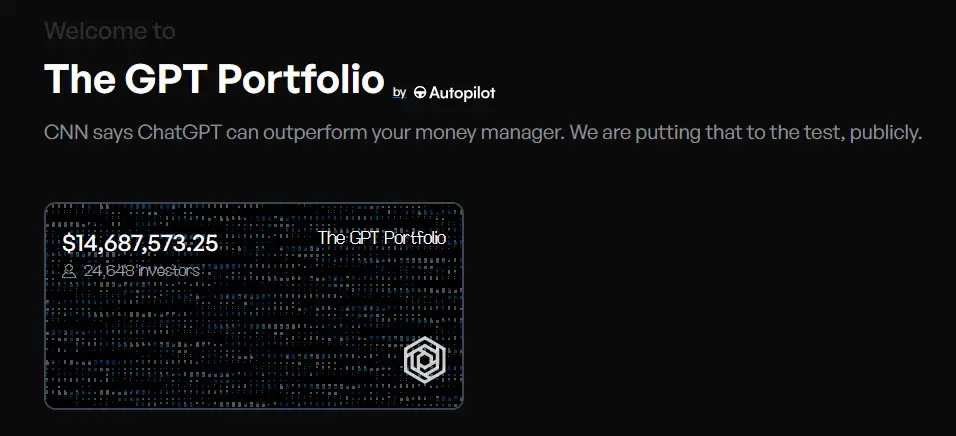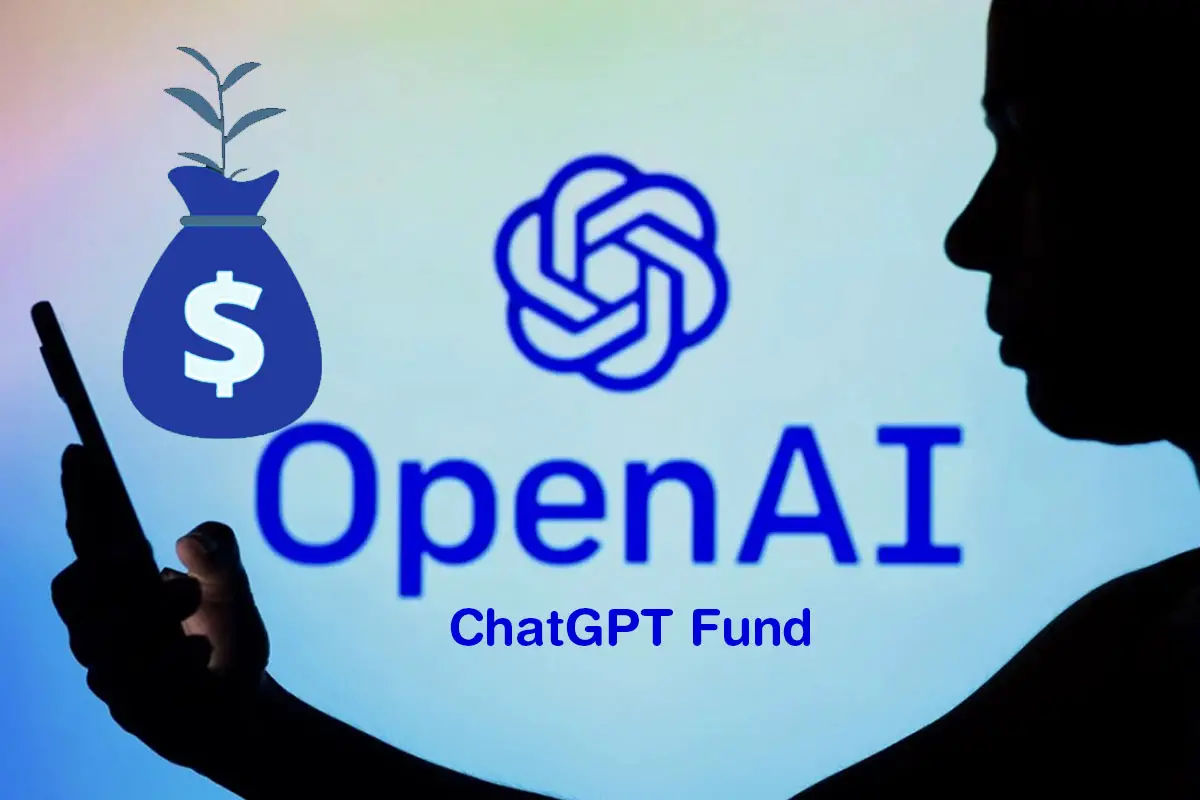The emergence of the ChatGPT fund has revolutionized the accessibility of AI technology in the investment landscape, empowering retail investors with advanced capabilities to compete against traditional Wall Street players.
While it’s crucial to recognize that AI technology isn’t infallible and may sometimes provide inaccurate or misleading information, understanding how to leverage tools like ChatGPT intelligently can greatly enhance our financial decision-making process.
In this article, we will delve into the concept of the ChatGPT fund and explore how you can utilize ChatGPT for successful stock trading.
What Is the ChatGPT Fund?
The ChatGPT fund represents an experimental approach that employs ChatGPT’s analytical capabilities to select stocks based on key financial metrics such as revenue growth history, debt coverage, and profitability. Moreover, ChatGPT utilizes sentiment analysis of market news related to specific stocks to inform its trading decisions.
For instance, negative media coverage or disappointing earnings reports may trigger a recommendation to sell a position or avoid investing in a particular stock.
How Does the ChatGPT Fund Work?
The ChatGPT fund operates by granting ChatGPT or one of OpenAI’s APIs access to a brokerage account, enabling it to execute buy and sell orders for stocks. An initial experiment based in the UK showcased promising results, with the ChatGPT fund outperforming a selection of UK investment firms as well as the S&P 500. However, it’s important to note that this experiment ran for a relatively short period, making it necessary to assess the fund’s performance over a more extended time frame to validate its investment strategy effectively.
The GPT Portfolio: Exploring AI’s Stock-Picking Potential

Another notable ChatGPT fund, known as the GPT portfolio, aims to determine whether ChatGPT can outperform hedge funds in stock selection. The investment process employed by the GPT portfolio involves the following steps:
ChatGPT API analyzes over 10,000 market headlines. Each headline receives a sentiment score indicating positivity or negativity. ChatGPT assesses the financial statements of the top 100 graded stocks. The portfolio invests in the top 20 stocks. Buy and sell transactions occur 1 to 2 times per week.
The GPT portfolio commenced with an initial funding of $50,000 and is managed through a service called Autopilot, enabling users to replicate or adopt various investment strategies. Impressively, approximately 25,000 individuals have collectively invested $14.5 million in support of the GPT portfolio strategy.
Utilizing ChatGPT for Stock Investing
While many hedge funds currently rely on algorithmic or high-frequency trading to achieve superior returns, ChatGPT’s real-time data access still necessitates substantial prompt engineering and proprietary data to realistically surpass the performance of the S&P 500. Although I must clarify that I am not a financial advisor, I can provide you with insights on how to incorporate ChatGPT into your research process effectively:
1. Information Retrieval: Enhancing Your Knowledge
Leverage ChatGPT to retrieve comprehensive information about financial topics, stock trading concepts, and financial analysis. This powerful tool can elucidate the functioning of stocks, the factors influencing their prices, essential financial ratios, and other fundamental knowledge crucial for safeguarding your capital.
2. Explaining Financial Reports: Decoding the Language of Finance
ChatGPT can be your reliable guide in deciphering the terminologies and elements found in financial reports like balance sheets, income statements, and cash flow statements. Acquiring a profound understanding of these reports is vital for making informed investment decisions.
3. Investment Strategies: Navigating the Landscape
ChatGPT simplifies the vast universe of investment strategies by offering explanations of various approaches such as value investing, growth investing, or dividend investing. This can help you identify the strategy that aligns with your goals and risk appetite.
4. Risk Assessment: Identifying Potential Pitfalls
Use ChatGPT as a devil’s advocate to identify potential risks and downsides associated with specific investment decisions. By proactively managing these risks, you can effectively safeguard your portfolio and prevent unnecessary losses.
5. Scenario Analysis: Weighing Pros and Cons
Engage with ChatGPT to conduct scenario analyses related to trading. By discussing hypothetical scenarios, you can gain deeper insights into potential outcomes and devise effective strategies accordingly.
6. Technical Analysis: Mastering Market Trends
Although trading stocks based solely on price charts can be challenging, ChatGPT can serve as your personal 24/7 teacher, providing explanations of various technical analysis concepts such as chart patterns and indicators. This knowledge can enhance your ability to navigate the market with greater confidence.
7. Behavioral Finance: Overcoming Cognitive Biases
Social media platforms often influence investment decisions due to cognitive biases. By consulting ChatGPT, you can evaluate how cognitive biases, such as loss aversion and herd mentality, might be affecting your investment choices and take steps to mitigate their impact.
8. Interpreting Economic News: Analyzing Market Sentiment
Utilize ChatGPT to evaluate the sentiment and potential impact of economic news on the stock market.
This approach mirrors the operational strategy of the ChatGPT fund and several related projects.
For more efficient analysis, consider automating the process using the ChatGPT API, allowing you to assess numerous headlines simultaneously via the OpenAI playground.
Conclusion: ChatGPT as an Educational Resource
The ChatGPT fund experiment has shed light on the immense potential of harnessing large language models like ChatGPT to guide investment strategies. However, it is essential to exercise caution and avoid blindly relying on ChatGPT for investment decisions. Trading bots are not new and often become obsolete rapidly in the ever-evolving market. Presently, the most effective way to utilize ChatGPT for investing is to view it as an educational tool and thought partner, assisting you in developing your investment philosophy.
FAQs
Can You Use ChatGPT for Stock Trading?
Certainly! ChatGPT can be a valuable tool in supporting your investment decision-making process. Additionally, projects like the GPT portfolio allow investors to observe and replicate stock trades executed by ChatGPT. Nevertheless, it’s crucial to remember that the information provided here does not constitute investment advice.
Can ChatGPT Predict the Forex Market?
No, ChatGPT cannot predict the forex market. However, it can serve as a valuable resource to learn about forex trading strategies and assess potential risks involved.
Disclaimer: This article is for educational purpose only, Aitechtonic does not endorse financial advice in this content.

